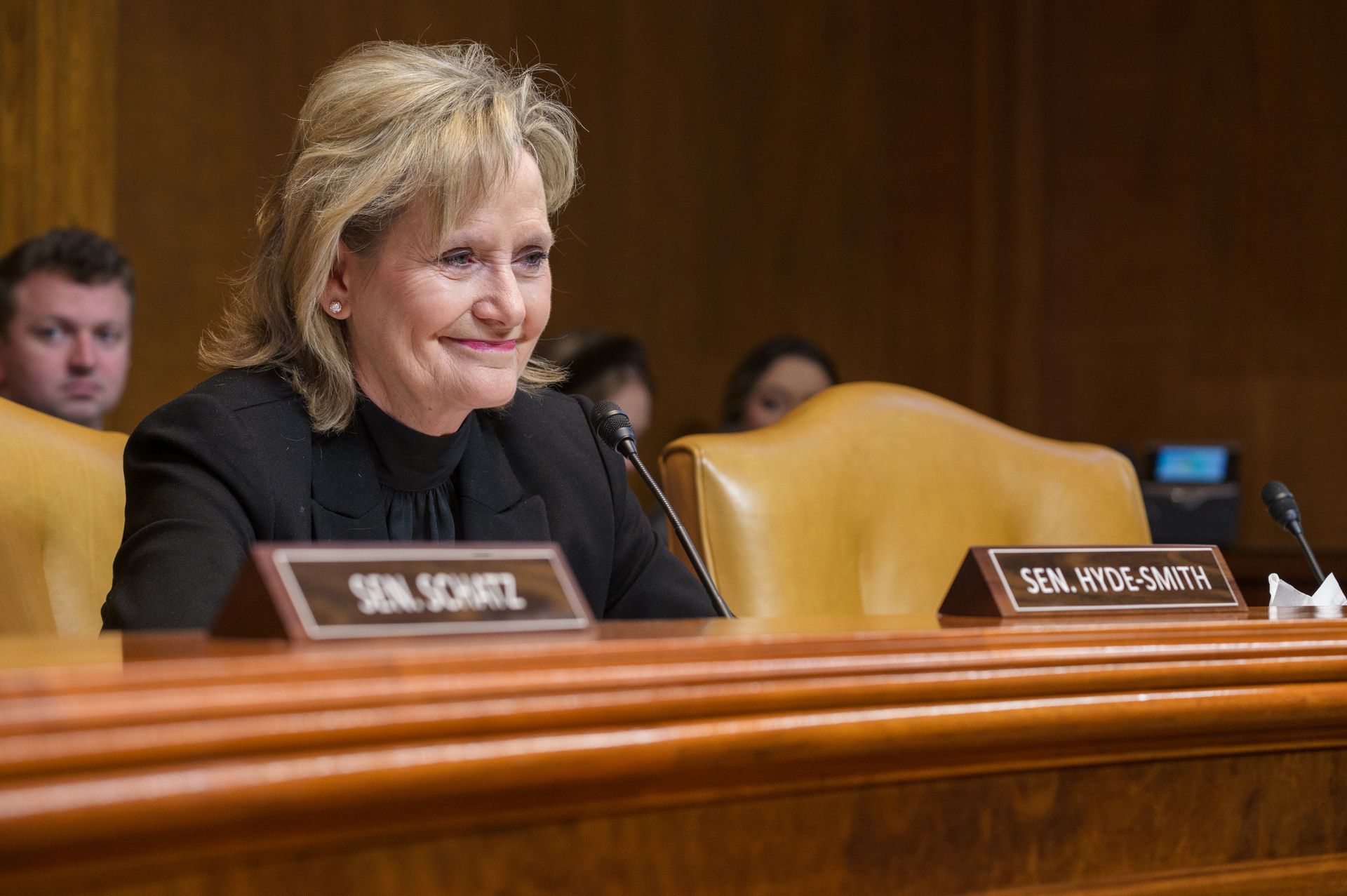HYDE-SMITH, PANEL STUDY IMPROVEMENTS TO CDBG DISASTER RECOVERY PROGRAM
Subcommittee, Witnesses All Want Congress to Permanently Authorize HUD Relief Program

VIDEO: Senator Hyde-Smith Statement on Improving CDBG Disaster Recovery Program.
VIDEO: Senator Hyde-Smith Questions Witnesses on Long-term, Immediate Changes to CDBG-DR
WASHINGTON, D.C. – U.S. Senator Cindy Hyde-Smith (R-Miss.) today advocated for permanent authorization of and improvements to a key federal program used to help families, businesses, and communities rebuild following natural disasters.
Hyde-Smith is the lead Republican on the Senate Transportation, Housing and Urban Development (THUD) Appropriations Subcommittee that conducted a hearing on Tuesday titled, Communities in Crisis: What Happens When Disaster Recovery Funds are Delayed, which focused on improving the HUD Community Development Block Grant Disaster Recovery (CDBG-DR) program.
“Natural disasters are not partisan in their impact, and our response should not be either. We should work on a bipartisan basis to improve existing programs like CDBG-DR,” Hyde-Smith said.
“All instances of natural disasters are heartbreaking, but Mississippians are resilient. From hurricanes and floods, to storms and tornadoes, the people of Mississippi have weathered what Mother Nature has thrown at them,” she said. “However, there are times when these disasters can result in a scale of damage that local or even state governments are unable to mitigate without federal assistance. Helping to address this unmet need is an appropriate role for the federal government.”
The hearing demonstrated bipartisan support for enactment of the Reforming Disaster Recovery Act (S.1686), which would formally authorize CDBG-DR in order to establish a permanent and predictable process to provide disaster assistance for housing and community development. Hyde-Smith is an original cosponsor of the measure, which was written to overcome existing hurdles to delivering aid.
“This ad-hoc approach to CDBG-DR has meant that some grantees have had to administer multiple grants concurrently, applying slightly different rules and requirements for each grant. This approach has also had the unintended consequence of slowing the delivery of assistance to communities, sometimes by several years; making it more challenging for communities to proactively design effective disaster response programs,” Hyde-Smith said.
Hyde-Smith sought to shed light on how dealing with the federal government affects individuals and families and asked witnesses what actions HUD could implement now to improve CDBG-DR to give communities recovering from disasters more assistance and greater certainty.
“It is clear that program and process improvements should not wait until we can get the authorization across the finish line,” Hyde-Smith said. “What can HUD do now, without waiting for passage of the authorization bill, to improve the effectiveness of either the state and local grantees or the experience of the individuals and families that rely on this assistance to rebuild their lives and communities?”
Witnesses recommended, among other things, providing greater certainty for communities through faster allocation grant notices, providing prompt and predictable timelines and technical assistance for small, rural, or tribal communities, and advocating pre-disaster resilience actions.
“Let’s get ahead of the disasters,” said Ran Reinhard, South Carolina Office of Resilience director of operations. “Have HUD go to communities and train those small communities that have yet to be hit on how, if and when you get hit, this is how you do disaster recovery.”
The Reforming Disaster Recovery Act, introduced by U.S. Senators Brian Schatz (D-Hawaii) and Susan Collins (R-Maine) in May, was referred to the Senate Banking Committee, where it awaits further action.
###
